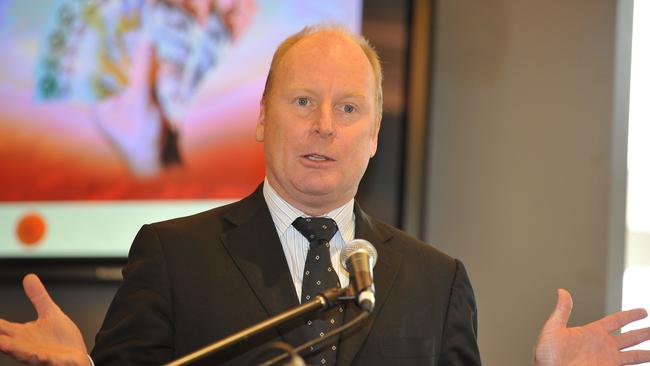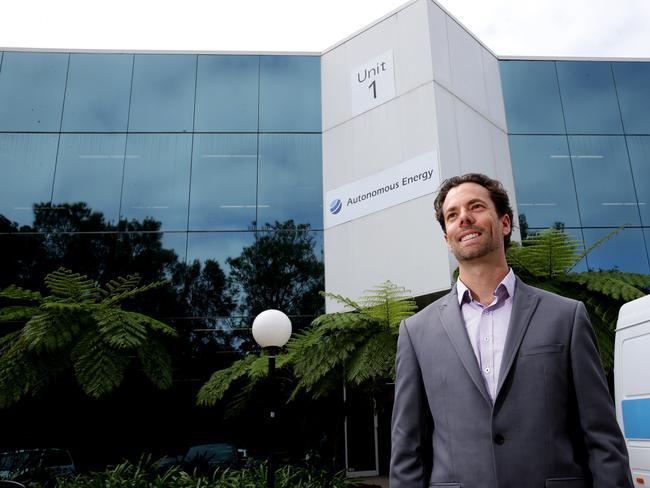Is it better for a small business to invest capital early in the game or to wait?
ONE of the most common problems of emerging businesses is managing cash flow as the operation grows. It’s almost a chicken and egg problem.

ONE of the most common problems of emerging businesses is managing costs and cash flow as the operation grows.
It’s almost a chicken and egg problem. Should you invest first, draining your cash flow and capital, in anticipation of new business coming through the door? In almost every case the answer is no.
The other alternative is to work hard on the sales initiative and then work out how you will fulfil those orders. Again, an emerging business has to be careful: if you disappoint your customers by not delivering the right quality, on time, you risk losing sales in the future.
No matter which option you choose, both carry a great deal of risk that could be terminal for a new enterprise.
In truth, most businesses with little capital will lean more towards the second tactic rather than the first, mainly because they’ll have limited funds to begin with.
The next problem comes as the company gears up for the business it’s won. Decisions about fixed capital costs must be taken very carefully. The problem for a new business is that if you buy or lease new plant or equipment you must be confident that the work will continue for the foreseeable future. The worst case scenario is that you commit capital for equipment or staff, only to find the work dries up.
In some ways this is where the desperation of the small and medium sized business owner comes in. They are constantly playing a game of catch-up with their own operating costs. If ever the sales slip behind then their capital reserves will start to dwindle or debts will start to rise. Big business plays the same game but the survival of small business depends upon it.
But there’s one other aspect of this desperation for business that can cause long-term financial problems. In many competitive industries, especially where tendering is a typical way to win business, there is a tendency to reduce quotes to simply win business to keep the cash flow coming through the door.
For an emerging small business the obvious problem is not knowing exactly how much a new job will cost when tendering for it.
The key to business success is knowing when to knock back work, because it is unprofitable or detrimental to the company’s ongoing survival.
But most companies do not have the luxury (or capital reserves) to easily refuse business and so they must resort to their own skills of managing costs to scrape out a profit.
This is why so many emerging companies tend to use more casual labour, serviced office space and equipment hire than mature businesses. The success of labour hire companies such as Skilled; equipment hire companies including Coates and serviced office companies like Servcorp are testament to the precarious nature of emerging businesses.
The mere fact that such companies exist also provides some answers to the ongoing problems of managing cash flow and capital in a new company.
A LITTLE PASSION CAN GO A LONG WAY

MARK Gadd started his business 12 years ago in the spare bedroom of a rented flat. He had an idea and passion, but little else.
Today his business — Autonomous Energy — has 50 people and specialises in a range of energy-saving projects. He won awards from the Clean Energy Council in 2013 and was a finalist in 2014 and 2015.
But that’s not how it started. Mark concedes that when it started he had a shortage of financial resources ... and resources in general.
“In the beginning it was like we were walking on a cash-flow tightrope,” he says.
“We are a project-based business with no ongoing revenue source. This means that every
day we have to win and deliver new projects, just to keep the wheels turning. There were times when if we didn’t get a sale next month, we didn’t have a business,” he says.
“In a business like ours to hire more people you need to win more projects and to win more projects you need more people.
“We solved this riddle by always trying to do both concurrently and investing in people. You have to be determined and persevere.”
That passion goes all the way back to Mark Gadd’s school days, where he was fascinated by the concept of converting sunlight
into electricity.
He started Autonomous Energy while studying for his Masters degree, having had experience working for another solar
power company.
Yet strangely, for a company that relies on hand-to-mouth continual business, it has
evolved to a point of having no sales people.
Instead — going back to his days of study — Gadd hired engineers and electricians: the people
who do the installations and
who solve the puzzles that generate the work.
His theory has been that his best form of marketing is the work his people are doing in the field.




